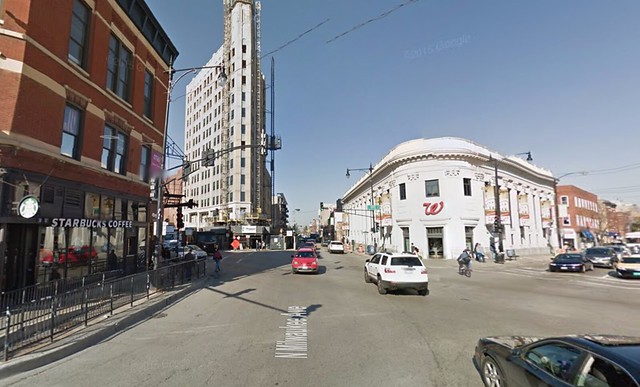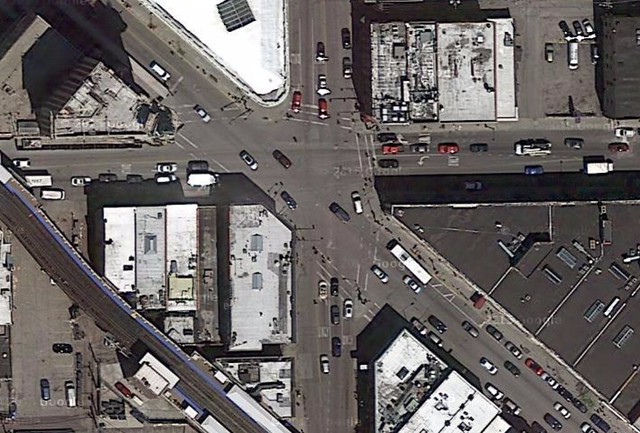Located just north of a Blue Line station, the North/Damen/Milwaukee junction is the epicenter of the Wicker Park and Bucktown shopping district and one of the busiest locations in town for foot and bicycle traffic. But it's also one of the city's most dysfunctional intersections in terms of traffic management.

Case in point is the phenomenon illustrated in these videos, shot this evening between 4:45 and 5 p.m. from in front of the Walgreens at the northern corner of the six-way, looking south. Commuters heading north on from the train station who want to continue north on Damen are supposed to detour west and make two different crossings in crosswalks.
Instead, most people choose to take the most direct route by making a beeline from the Starbucks to the Walgreens. It's the most logical path but, because the intersection is set up to prioritize car traffic, this is an illegal, and risky, maneuver.
In the mid-2000s, the city erected the railings in front of the Starbucks in an effort to discourage pedestrians from making this crossing. But, as these videos show, that strategy didn't work.
Instead of pretending that people aren't making this crossing, the city should accommodate this obvious pedestrian desire line by making it legal and safe to take the direct route. The simplest way to accommodate this move, as well as other direct crossings at this intersection that are currently banned, would be to implement a pedestrian scramble signal phase, in which all motorized traffic pauses while people on foot are permitted to cross in all directions. This was done a few years ago downtown at Jackson and State.
Yes, this means drivers would have to wait a bit longer at this already-congested intersection. But, since it would make the location much safer and better organized, and there would be fewer pedestrian crossings during other phases, the change would benefit all road users.
![]()
Did you appreciate this post? Streetsblog Chicago is currently funded until April 2016. Consider making a donation through our PublicGood site to help ensure we can continue to publish next year.





